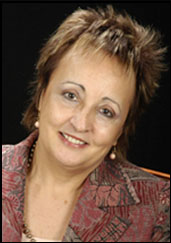Susana Sans
Year: March 31st, 2006
Location: Athens, Greece
Interviewed by: Labarthe, Darwin
Abstract
An invitation from Geoffrey Rose and Hugh Tunstall-Pedoe to participate in the WHO MRF factory trial led to Dr. Sans’s period of study at the London School of Hygiene and Tropical Medicine and to attendance at the 10-day International Society of Cardiology seminar in Insbruck in 1978. Ignacio Balaguer in cardiology and Luis Tomas in industrial medicine were her core advisors. But Sans had already identified with a group of medical students with interests in public health during the Franco regime. They felt ‘part of a movement,’ thus coming to epidemiology and public health by political orientation.
The interview describes her interaction with the WHO trial and as central player in MONICA, the early role of Balaguer in Spanish cardiology and with interests in epidemioiogy, and the later seminal development of the European Society of Cardiology Working Groups in Epidemiology and in Prevention and Rehabilitation. The interview touches on the interest of Ancel Keys and Balaguer in having Spain involved in the Seven Countries Study, and their keen sense of loss when it did not happen and attempts to catch up with industrial populations.
It also considers the pros and cons of the modern reorganization of the European Society of Cardiologists which reorients the Epidemiology Working Group toward the clinical and secondary prevention and away from primary prevention, a similar phenomenon to the take-over of the World Heart Federation and downgrading of the strong Epidemiology and Prevention Council. (Henry Blackburn)
Quotes
But also it was a historical moment in our country where participating in international projects was something of value that would bring knowledge into the country and help to develop the health services. Don’t forget that we were just coming… I mean, these were the first democratic years in Spain in the early Eighties. So we were in a process of national reconstruction, so to say.
I think the period from the Eighties and early Nineties were very active and there was a lot of collaboration and a lot of a certain spirit of being part of a movement, but it was a sort of all belonging to the same, I would not say school, but school code.
It was through that group of people that we got together in the medical school and got very active in trying to seek training for that and somehow we got organized around the medical association in Barcelona and then there was a couple of people that had migrated from Argentina to Barcelona running away from the military regime and who had been professors at the School of Public Health in Buenos Aires and they settled in Barcelona. So they were teaching short courses on public health and epidemiology. So that was my first formal training. But then also there were a couple of people in Madrid who were senior public health people and… how should I explain this? Who also had migrated to Argentina and came back with the democracy here. And also somehow we got in touch with them. That’s making a long story short now. But that was the very beginning. But then through my participation in the factory trial as a research fellow, of course I got acquainted with Geoffrey Rose and Hugh Tunstall-Pedo and then my motivation to go abroad to get formal training came about. But before that I went to attend a seminar in Innsbruck in ’78. And immediately after that I went to London to the London School of Hygiene.
DL: When you say collaboration, how far reaching was that? You are speaking of Spain, within Europe…
S: I was talking about Europe now and I think that the MONICA Project, actually it was the main factor after the factory trial had finished. Actually all of the people who were participating in the Factory Trial were in MONICA as well.
DL: One major project established in some sense an infrastructure or a collaboration or network, perhaps, is a better term that then continued into the next project with MONICA.
Full Transcript Access
Full transcripts of interviews may be made available to those engaged with original materials for scholarly studies by contacting us.
